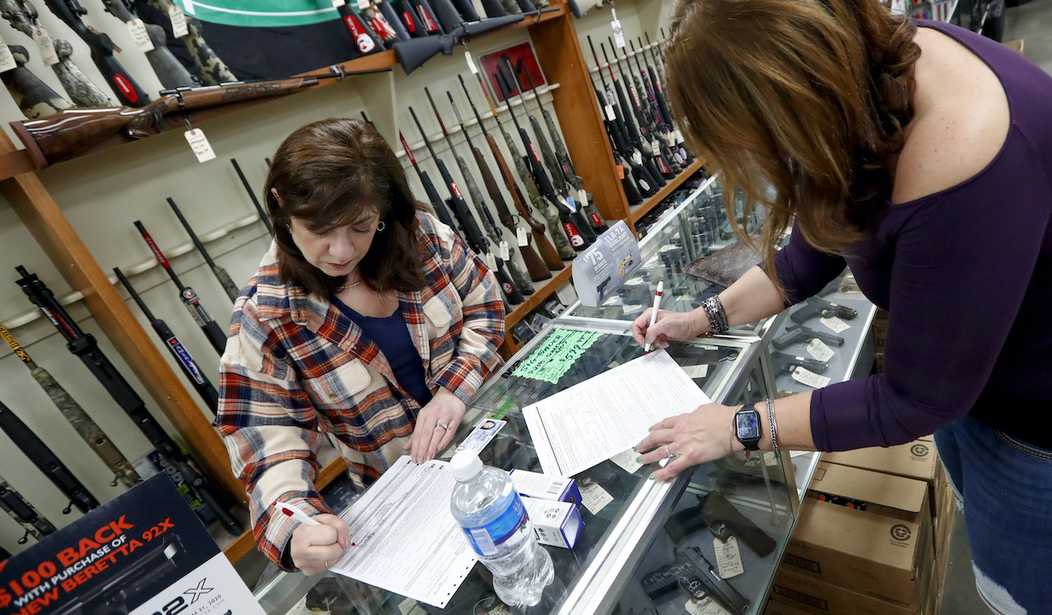A few days ago, I was watching the “Ozark” series with my wife (super late to the party, I know). Late in the first season, one of the characters with Down Syndrome named Tuck walks into a Walmart-style store and purchases a long gun over the counter.
The show’s creators (probably ultra-libs) obviously meant the scene as an exposition of the absurdity of America’s lax gun laws, as evidenced by the comedic framing.
And it apparently worked as intended to scandalize the liberal viewership, who took the occasion to call for gun control on Twitter.
As a Canadian watching #Ozark one of the most shocking things was how easy it was for Tuck to purchase a gun.#GunControlNow
— Julie Francella ᑌᐁᕐ ᐒᒪᓐ Ogichida Waawaashkeshi’Kwe (@JulieFrancella) May 16, 2022
I jokingly sent a text to my friend stateside who enjoys purchasing and trading guns. It read something along the lines of “God Bless the USA.” He agreed, offering that it would be a bit fascistic to deny the mentally challenged the ability to procure firearms as is their Constitutional birthright as Americans born in the Land of the Free.
Shockingly, the leftist American Civil Liberties Union (ACLU) seems to already have come down on the “yes” side of the mentally challenged-buying-guns dilemma. This was unexpected; the ACLU once upon a time actually devoted its resources to protecting bedrock American civil liberties, but it has largely turned into a partisan Democrat Party clown show — even cheerleading vaccine mandates at the height of COVID-19. Of course, they offer the caveat that they “do not oppose gun control laws” per se, just that they oppose gun control laws specifically targeting the mentally handicapped.
Via ACLU, 2017 (emphasis added):
This month, Congress repealed a rule that would have registered thousands of Social Security recipients with mental disabilities, who have others manage their benefits, into the National Instant Criminal Background Check System to prevent them from owning firearms.
The American Civil Liberties Union does not oppose gun control laws. As an organization dedicated to defending all constitutional rights, we believe the Second Amendment allows reasonable restrictions to promote public safety.
But gun control laws, like any law, should be fair, effective and not based on prejudice or stereotype. This rule met none of those criteria.
The thousands of Americans whose disability benefits are managed by someone else range from young people with depression and financial inexperience to older adults with Down syndrome needing help with a limited budget. But no data — none — show that these individuals have a propensity for violence in general or gun violence in particular.
To the contrary, studies show that people with mental disabilities are less likely to commit firearm crimes than to be the victims of violence by others…
The ACLU and 23 national disability groups did not oppose this rule because we want more guns in our community. This is about more than guns. Adding more innocent Americans to the National Instant Criminal Background database because of a mental disability is a disturbing trend — one that could be applied to voting, parenting or other rights dearer than gun ownership. We opposed it because it would do little to stem gun violence but do much to harm our civil rights.
Related: Judge Approves Oregon’s ‘Terrible’ New Gun Control Law
I honestly don’t really know where I come down on this issue, but I tend to agree with the ACLU that restricting adults’ access to guns based on mental disability — especially given their lower likelihood to actually use them in the commission of a crime — is unduly discriminatory. Individuals with Down Syndrome, for instance, are capable of learning something basic like gun safety in my estimation. If they can, and they appreciate the power they wield when they pick one up, I don’t see why they should be denied a Constitutional right.










